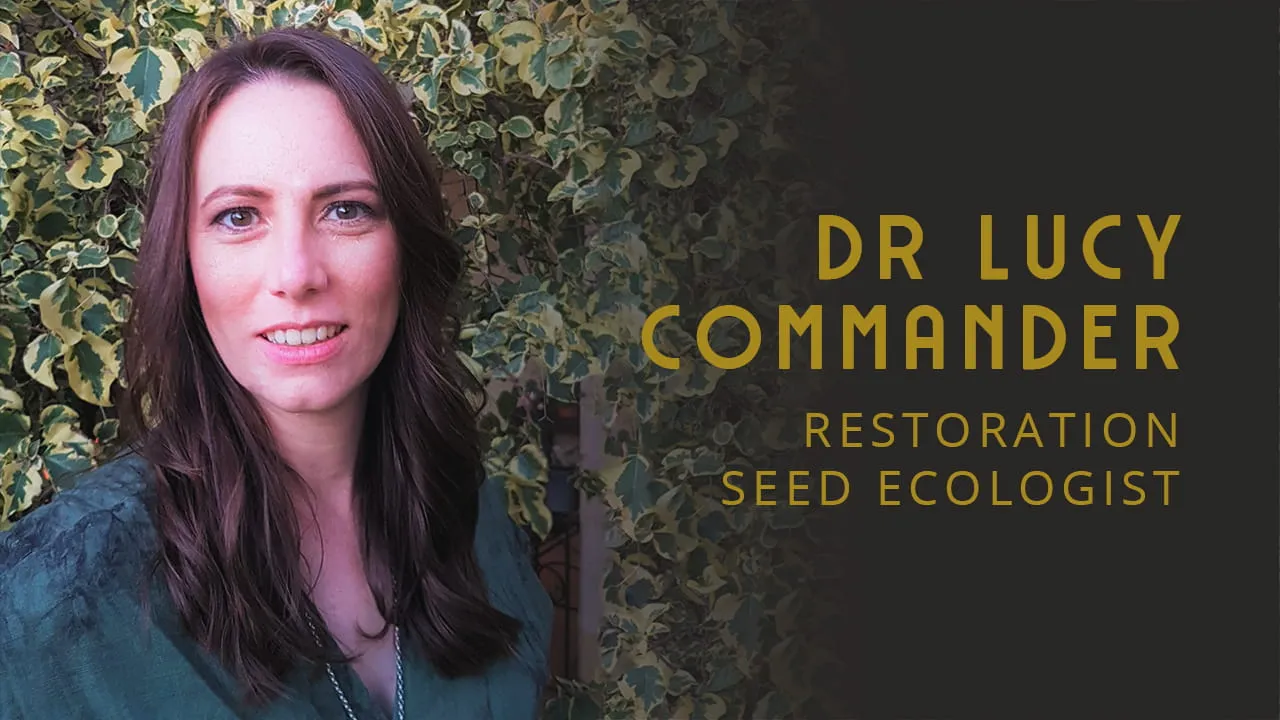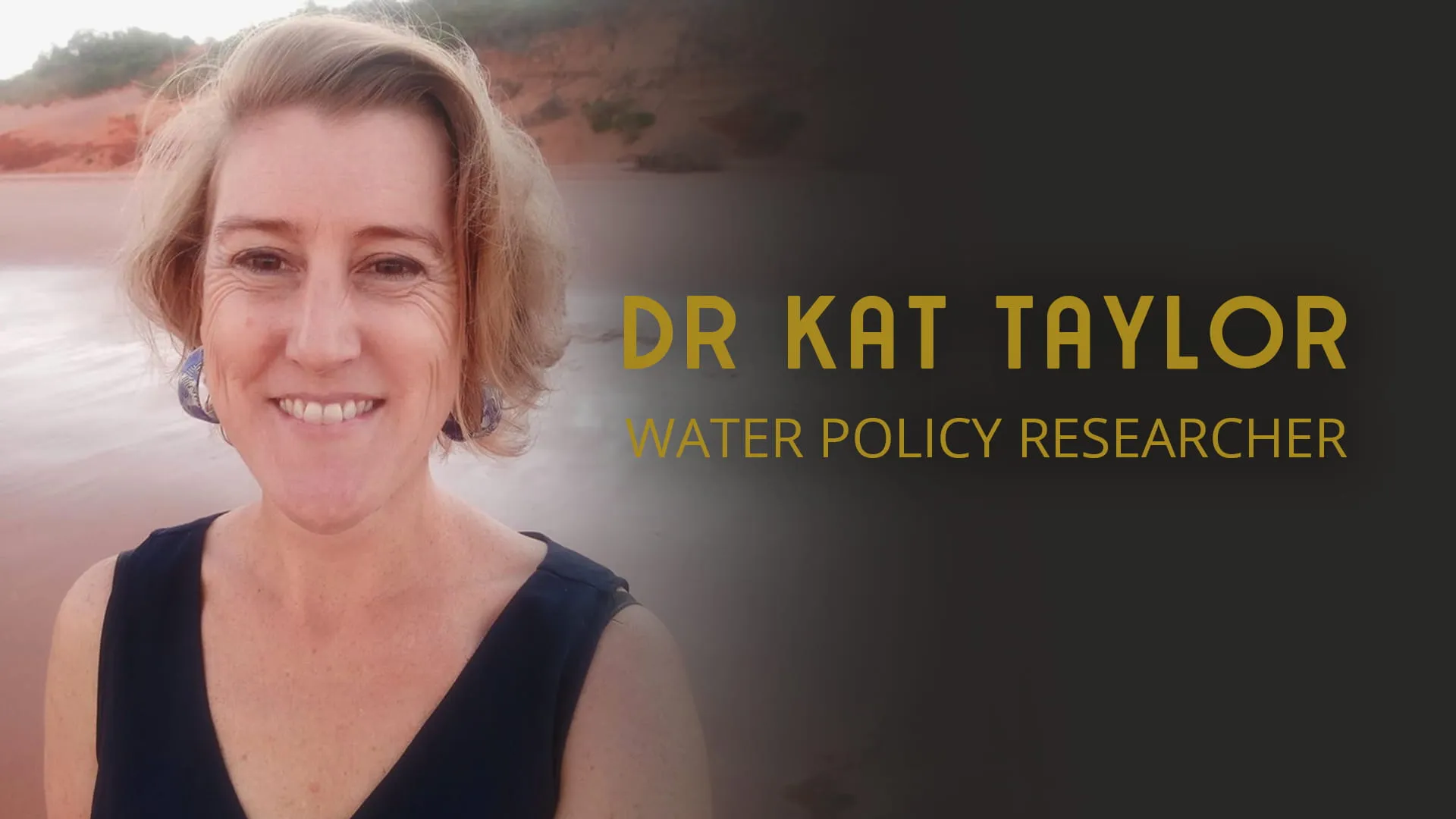Renewable energy in agriculture with Karin Stark
Karin Stark is an advocate for renewable energy in the farming sector, and founded the National Renewables in Agriculture Conference. She has a background in Environmental Science and Sustainable Development, and has also worked on sustainable transport programs.
Join us as we talk about art, the London Cycle Hire Scheme and Renewable energy in agriculture.
About Karin Stark
Karin Stark’s international and professional history combines 18 years of engagement with communities around contemporary environmental issues. She founded the National Renewables in Agriculture Conference in 2019 and is Director of Farm Renewables Consulting. She’s a mum, and also works part time for ReAqua, with previous roles within the NSW State Government and in Landcare. Her family farm has Australia’s largest solar-diesel irrigation system at 500kW and 1500 panels.
 500kW 1500 panel solar system on Karin's family farm](/_astro/003-karin_stark-reaqua.CayRZEnH_1aEG5B.webp)
500kW 1500 panel solar system on Karin's family farm. Photo by ReAqua
- Twitter: @karinstark79
- National Renewables in Agriculture Conference: https://www.renewablesinagconference.com.au/
- Farm Renewables Consulting: http://www.farmrenewables.com.au/
Listen to the Podcast
Listen on Apple Podcasts, Spotify, iHeartRadio, Amazon Music, Castbox, Deezer, Goodpods, Overcast, Pocket Casts, TuneIn, Blubrry, Podcast Addict, Podchaser, JioSaavn, RSS , and other podcast platforms.
Watch on YouTube
- [00:47] Studying Environmental Science and Sustainable Development
- [01:53] Working in sustainable transport
- [02:53] The London Cycle Hire Scheme
- [04:27] What coordinating the program entails
- [06:19] The effect of bike helmet laws on cycle hire programs
- [08:42] Transitioning to renewables in agriculture
- [09:36] Introduction to solar in irrigation
- [11:03] About their Narromine cotton farm
- [11:42] The controversy around cotton
- [13:09] Operating costs of diesel pumps
- [13:28] Installation of the largest hybrid solar / diesel pump system in Australia
- [14:26] Reduction of carbon emissions
- [15:10] Other farms setting up similar systems
- [15:43] Founding the National Renewables in Agriculture Conference
- [17:24] Interstate participants
- [18:00] Leasing energy as a secondary income
- [19:00] The controversy behind the use of ag land
- [20:07] Agrivoltaics
- [21:02] Other agriculture businesses taking up renewables
- [22:07] What is involved in leasing land for energy production
- [23:11] About Reaqua and solar irrigation
- [25:15] What's next for the conference
- [25:39] Sample of the speakers for the next event
- [26:48] Sharing of new developments in alternative energy solutions
- [28:11] Support for agricultural renewables in other Australian states
- [29:03] AgZero2030
- [29:29] The impracticality of remote conferences for regional areas
- [30:10] Moving towards a renewables led recovery
- [30:55] Bonus Question 1: What hobby or interest do you have that is most unrelated to your field of work?
- [32:32] Bonus Question 2: Which childhood book holds the strongest memories for you?
- [34:36] Bonus Question 3: What advice you would give someone who wants to do what you do? Or what advice should they ignore?
Highlights
Topics/Resources/People Mentioned
- Murdoch University
- Department of Environment (TravelSmart)
- London Cycle Hire Scheme (wiki)
- Transport for London
- Office of Environment and Heritage (wiki)
- LandCare
- Reaqua
- National Renewables in Agriculture Conference
- ANU
- Agrivoltaic (wiki)
- Lorenz
- CSIRO
- Biogas (wiki)
- AgZero2030
Additional Resources
Addendum
At (11
), Karin wished to add:I should clarify that you can grow cotton on dry land (no irrigation but perhaps not best in a desert) but the yield would be poor.
A farmer will grow whatever is most profitable with the water allocation they have. It shouldn’t matter if it’s cotton, corn or canola.
Books
Books authored by Karin Stark or mentioned in our conversation.
Connect with Us
- @steampoweredshow
- @steampoweredshw
- @steampoweredshow
- @steampoweredshow
- @steampoweredshow
- @steampoweredshow
- steampoweredshow
Support STEAM Powered
Review Us
Please leave us a review on Apple Podcasts, Spotify, GoodPods, Podchaser, or your preferred podcatcher.
Become a Patron
Affiliate Programs
Start your own podcast or YouTube channel, or run panels and seminars with
Riverside.fm. Record up to 8
people in a session with up to 1000 audience members. You can record in advance
as I do, or you can livestream with the option to send it straight to Facebook,
Youtube, Twitter, or Twitch. There’s even a green-room for guests and live call
in for audience members. Afterwards, get separate video (up to 4K) and audio (up
to 48kHz) tracks per recorded participant for editing, none of that “active
speaker only” limitation. You know you’re in good hands with a service whose
client-base includes some heavy-hitters. Check out
Riverside.fm to see who else is on
board. Use promo code STEAM25 to get 25% off the first three months of your
subscription.
Music is “Gypsy Jazz in Paris 1935” by Brett Van Donsel.

